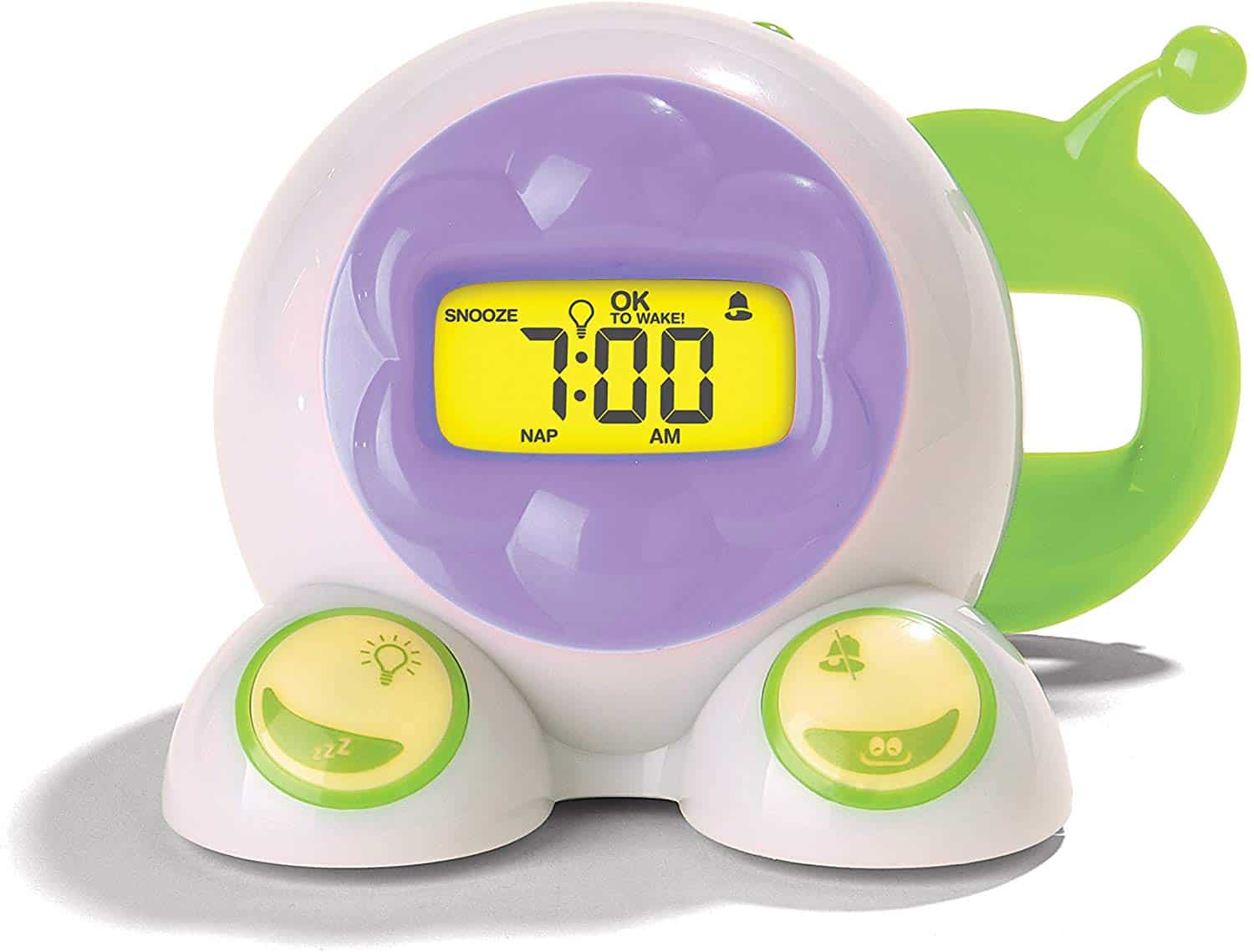“One more story.”
“Stay with me, Mommy.”
“I need to go potty.”
“Can I have a drink of water?”
Long, drawn-out bedtimes are very common during the toddler years and many are rooted in the need for power or control. Whether your child insists you lay in bed with them, keeps getting up, or asks for a snack, they may simply be trying to control their situation and you.
If you think about the world from a toddler’s perspective, they don’t have control over much. Their parents and caregivers decide when they go to bed and when they get up, what they eat and when, where they spend their days, when they go to the park (and when they leave), and pretty much everything.
Bedtime, mealtime, and toileting are common times for power struggles because your child has control over their body. You control what’s on their plate but they control whether they eat. You can put them on the toilet but you can’t make them pee. You put them in bed but you can’t force them to sleep.
The need for power is not a bad thing. It’s your child’s way of asserting their independence or telling you something is not quite right with them.
Your child might be telling you they want more control because they believe they are capable, they don’t want to be controlled (it doesn’t feel good), or they feel out of control. It’s our job as parents to listen to what they are saying with their actions and support them.
5 Tips to Navigate Power Struggles with Your Toddler at Bedtime
1. Check your need to win.
It takes two to engage in a power struggle so if you feel yourself needing to win the battle or force your child to comply, then it’s pretty much guaranteed that your toddler feels the same thing.
Power struggles are like this: Imagine you have your hands out in front of you as if telling others to stop and someone comes up and pushes your hands. What do you do? You instinctually resist and push back harder. The other person then pushes back with even more force.
When you raise your voice, threaten to take away your child’s toys, or dig your heels in, it will amplify your child’s response. They will instinctually resist and push back harder.
Now imagine the hand pushing situation again but instead of pushing back, you take a step sideways (or backward). The other person has nothing to push up against.
The best way to end a power struggle is to disengage from the battle. This doesn’t mean giving in to demands or letting our child call the shots. It means that instead of pushing back, we switch tactics.
2. Keep your higher purpose front-of-mind.
To help you remain calm and able to switch tactics, keep the higher purpose of what you’re doing in mind. Ask yourself why you want your child to go to bed at this particular time.
Maybe you see that they’re exhausted and you don’t want them to be tired and grumpy the next day.
Maybe you believe that sleep is essential for their health and well-being.
Maybe you want them to establish healthy habits related to taking care of their body.
Whatever your higher purpose is, keep it front-of-mind while you’re dealing with your child. This will help you remain consistent and unwavering as you navigate any resistance.
3. Consistency is key.
Let’s say you decide that bedtime is at 7:00pm based on our child’s body cues. You communicate this with your words, actions, and follow-through.
You can let your child know it’s time for bed, help them get ready, and then follow through on putting them to bed. You are continually communicating the importance of sleep through all of these steps.
When you allow bedtime to drag on or you give in to your child’s demands, you’re also communicating how important sleep is, but perhaps in this case, your actions suggest that sleep isn’t very important.
Your toddler is trying to figure out how serious you are and will keep pushing until they figure this out. This is how they learn.
Every time they resist bedtime, imagine them asking, “How important is sleep, Mommy?” You answer through your actions and ability to stay consistent.
When you follow through with putting your child to bed at 7:00pm, recognizing that you are doing so because you believe that sleep is essential to their health and well-being (or whatever your higher purpose is), the boundary is non-negotiable. You’re not going to compromise if you are acting in their highest and best interest.
You won’t give them one more story, or three cups of water because you believe that going to sleep at this time is in your child’s best interest.
When your child realizes that bedtime is not negotiable, they’ll stop trying to negotiate. They’ll realize you’re serious. Consistency equals clarity.
Now, there will be times when you will want your child to stay up late or you may not mind giving them “one more story” every once in a while. However, you may find that bedtime has turned into an hour-long process and you have no idea how this happened!
This is very common. The key is to notice what you’re doing and recognize how to shift things back.
4. Lead with connection.
Instead of pushing back when your child resists, focus on connecting with your child. This shifts you from trying to win to listening to their perspective and supporting them through their struggles.
The truth is, your child is allowed to disagree with your rules. They are a human being, separate from you, with their own opinions and ideas. It’s natural that they won’t always see eye-to-eye with you, and that’s OK.
Give them a hug. Validate their feelings by saying something like, “you’re upset that you have to go to bed.” Narrate the story with their perspective: “You were in the middle of building that tower and now it’s time for bed. You don’t want to go to bed. You wish you could stay up and continue to build.”
Bottom line: they still have to go to bed and you can help them with their upset by showing them you understand and are here to help. Connection tells your child that you accept them as-is and you are on their side, even when you disagree.
5. Let them grieve.
Your child may not like the rules. In fact, they may find the need to go to bed annoying and restricting. Sometimes your child just needs to grieve.
I use this word intentionally. When your child is resisting, they are not doing so because they want to be a pain-in-the-butt. Sometimes, they simply need to grieve the loss of playing with their toys, of not being able to stay up with you, or of not being able to sleep in your bed.
Let them get angry and experience sadness without trying to talk them out of their feelings. You can use your connection strategies of validating feelings and acknowledging their perspective, or you can simply sit there with them while they cry. Calmly take them back to bed if they keep getting up. There’s no need to get angry, remind them of what they should be doing, or threatening to take toys away.
Stay calm, keep your higher purpose in mind, and be there for them while they cry.
This holds your boundary in a firm, yet compassionate and respectful way while communicating that it is bedtime.
Remember, parenting is never about perfection. It’s not about getting your child to listen and follow the rules all day every day. If you find yourself slipping back into bedtime power struggles (and you will slip back from time to time), take a step back to re-assess the situation. Notice what you’re doing and how you’re responding (are you trying to win?). Reset what you’re doing and move forward in the direction you want to go.
It’s about progress, not perfection.
Better Bedtime's Go-To Products to Help With Sleep
The Sleepout® Curtain
The patented, portable blackout curtain that completely darkens a room and installs anywhere for better sleep. Get 10% off today!
Nested Bean Sleep Sack
The lightly weighted & adjustable Zen Sack from Nested Bean allows your baby to feel like they are sleeping in your arms. Your reassuring touch can signal comfort, security and love to your baby.
Onaroo OK to Wake Alarm Clock
The “OK to Wake!” green light is a simple, easy-to-understand, visual indicator that informs your toddler when it’s time to come visit mom and dad.

As the founder of Parenting With Lindsay, Lindsay Ford believes that kids are capable. Parents are capable. All misbehavior is a miscommunication. It’s about progress, not perfection. It’s OK to make mistakes. You are not a bad parent if you default to punishment.



